Anti-PFAS Bills That Could Affect Mattresses Introduced in Several States
In various anti-PFAS bills introduced so far in 2022, California and Minnesota would ban PFAS from mattresses sold on or after January 1, 2024, Rhode Island would ban PFAS from cribs and toddler mattresses, New Hampshire would require consumer products that contain PFAS to be labeled and for retailers of those products to acknowledge that they have been notified that those products contain PFAS, and Hawaii would not allow manufacturers to claim that products or packaging that contains more than 100 ppm of PFAS are recyclable.
Per- and poly-fluoroalkyl substances (commonly referred to as PFAS) refer to a broad class of over 4,000 individual fluorinated organic chemicals used to make fabrics stain and moisture resistant. PFAS have been dubbed “forever chemicals” because of their long breakdown time, and research may link them to some health problems, including high cholesterol, high blood pressure and certain types of cancer.
The anti-PFAS bills introduced so far this year range from testing and research requirements to efforts to regulate the sale, use and manufacture of these chemicals, and in some cases the finished products that contain PFAS. Those that could affect mattress manufacturers include:
- MN HF 3180: Would prohibit PFAS in upholstered furniture and textile furnishings, which includes “beddings” and carpet sold in the state effective January 1, 2024. The bill was heard in the House Environment Committee last Thursday.
- CA AB 1817: Would prohibit the intentional addition of PFAS in furnishings and bedding, as well as textiles and apparel, sold in the state effective January 1, 2024, and would require that any replacements be the least toxic alternative available. The bill is scheduled for a hearing on March 10.
- NH HB 1422: Would require manufacturers to include a warning on any consumer products that contain PFAS and obtain written acknowledgment from retailers selling those products that they have been notified that the product contains PFAS.
- RI H 7436: Would prohibit PFAS from being intentionally added in juvenile products, as well as carpet, upholstered furniture, textile furnishings, apparel, cosmetics, cookware and firefighting foam. Although adult mattresses are specifically excluded from the bill, the term “juvenile products” is defined to include crib and toddler mattresses. The bill also authorizes the Department of Environmental Management to prohibit the use of PFAS from other products and to issue exemptions in specific situations.
- HI HB 1646 and SB 2846: Would set criteria for when a manufacturer may claim that a product or its packaging are recyclable (including use of the “chasing arrow” symbol). In addition to requiring that at least 75% of the product or packaging be recyclable, the bill provides that component products or packaging that contain over 100 ppm of PFAS in the product or a product component could not be considered recyclable. Recyclability claims that violate these criteria would be considered deceptive or misleading. The House bill was heard last week in the Energy and Environmental Protection Committee.


